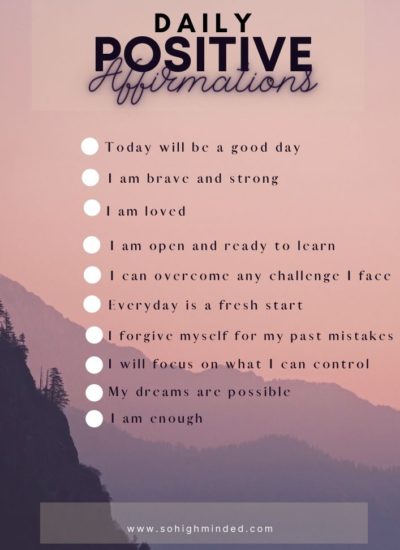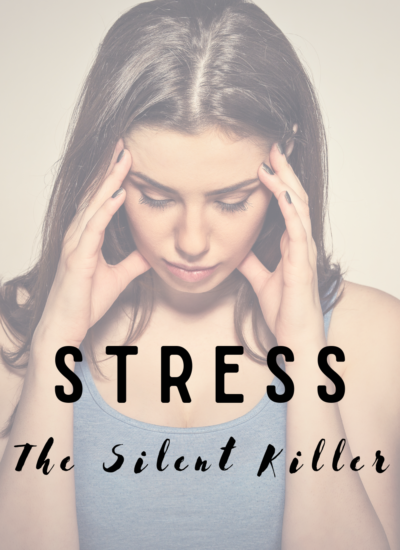This post may contain affiliate links. Please read the full disclosure here.

Social media has become a major part of life. During times of boredom, grabbing your mobile device and scrolling your newsfeed is probably second nature. Below are 6 benefits of social media detoxing and ways to reduce your social media usage.
Did you know the average person checks his or her cell phone approximately 100 times per day? Yes, 100 times per day!
For most, the average time spent on social media is approximately 2 hours per day, and recent data suggest that 70% of adults use social media.
Having mobile devices provide the luxury of having the world-wide-web at your fingertips. With this luxury, it is easy to teeter between staying informed and constantly being preoccupied with scrolling down your timeline.
Let’s be honest, most people use some form of social media each day. You probably found this post through a social media app.
Social media can provide a way to stay connected with loved ones, a wealth of information, opportunities, and entertainment.
On the other hand, engaging on social media comes with many disadvantages, especially your emotional health.
What more could you accomplish each day if you reduced your time spent on social media?
It’s so easy to lose track of time and “get lost” exploring the latest posts on your newsfeed.
By chance, have you ever noticed a change in your mood after viewing social media apps? For many, the answer is yes.
Social media has been linked to lower self-esteem, anxiety, and depression.
You may have noticed the need to decrease your social media use, which is totally understandable. Putting limits on your social media can improve many areas of your life.
Reducing your social media usage and focusing on self-care can result in a more productive and happier you.
What is a Social Media Detox?
Great question! Social media detoxing, also known as digital detox, is when someone takes a break from using social media.
Just like you would want to participate in the latest diet detox to improve your gastrointestinal (GI) health, skin, or lose weight, social media detoxing will give your brain, neck, fingers, wrists, and eyes a break and help improve your emotional wellbeing.
Decreasing your screen time can be a breath of fresh air!
Signs You May Need to Take a Social Media Break
Below are some signs that may indicate you may need to take a step back from your social media account(s).
Do any of the following apply to you?
- Constantly feel the need to check your newsfeed
- Being told you are always on your phone
- Feel irritated, drained, or angry after viewing your timeline
- The first thing you do in the morning is check your social media
- Constantly comparing yourself to others
- Feel inadequate if you do not get “enough” likes, shares, or comments on your post(s)
- Feel like you don’t have enough hours in the day to complete tasks
- Constantly checking your social media accounts while driving
- Attending events for the sole purpose of posting pictures
- Frequently getting into arguments on social media
- Can’t enjoy the moment due to feeling the need to post about what you are doing
- Questioning your worth (low self-esteem)
- Increased stress and anxiety
- Experiencing trouble sleeping
- Feel depressed or feelings of defeat due to social media
6 Benefits of a Social Media Detox
Less comparing
It is easy to get into a virtual competition war. Seeing others post their beautiful, color-coordinated family portraits, designer fashion, and latest accomplishments can lead some people spiraling into a place of low self-esteem, feeling of defeat, or depression.
Please remember, most people put the best images of themselves online. Don’t let the illusion fool you!
More productivity

Let’s face it, being on social media can be very time-consuming. It’s very easy to check your Facebook feed and lose track of time.
Being more mindful of your time can increase your daily productivity level and give you the needed time to complete some tasks on your to-do list.
More time to be present with family and friends
Are your loved ones always nagging you about being on your phone? While social media detoxing, you are sure to be less distracted.
This will result in spending quality time with your loved ones and creating memories.
Enjoy the moment and your loved ones to the fullest by being present.
Improved happiness

Reducing your social media use means you will have time to explore new interests and establish new hobbies.
Limiting your screen time on your social media apps is sure to improve your mood.
What is something you have been wanting to try? Now is the time to explore new adventures!
Less stress
Trying to think of a catchy caption and capture the perfect picture can be stressful and feel more like a job.
Do you find yourself stressing and constantly checking your likes, followers, or mentions?
Taking a step back from social media can be a digital vacation that you never knew you needed.
Improved mental health

Most importantly, decreasing your social media activity can yield tremendous benefits, and the status of your emotional health will blossom.
Several studies have linked social media usage to increased anxiety and depression.
Detoxing your mind is the ultimate self-care and the best gift you can give yourself.
Are you in search of some self-care tips? Here are over 40 self-care tips to improve your emotional and physical health.
Simple Tips to Reduce Social Media Use
1. Track the amount of time you spend on social media
Tracking the amount of time you spend on social media will give you a baseline.
From here, you will have a clear view of how social media is consuming your day and which apps you use the most.
Here is a list of free apps that you can download on your mobile device to track and reduce your social media usage.
(1) Moment: Cut Screen Time App: The Moment app helps users decrease their screen time and create a healthier relationship with their cell phones. This app will measure your screen time and the number of times you pick up your device. You will find helpful tips and motivation to reduce your screen time through automated notifications. Most importantly, this app is user-friendly.
(2) Flora App: The Flora app is sure to boost your productivity by allowing you to set specific goals for yourself. Flora encourages users to reduce screen time by rewarding users. Each time you reach a goal, a new tree will grow in your garden. If you leave the Flora app to scroll on social media, your tree will die.
To really hold yourself accountable, set a price on the goal you set. If you do not reach your goal and kill your tree, you pay the price, which funds real trees being planted. Over 60,000 real trees have been planted because of the Flora app. (Talking about an app with a purpose!)
(3) The latest iPhones and Androids have built-in screen time trackers, which makes tracking your social media behavior easy.
iPhones have the Screen Time feature that allows users to track and set limits. Here are the steps to set limits on your social media apps: Go to Settings> Screen Time> App Limits> Add Limit> Select Social and select the social media app of your choice and select Next> Set a Time Limit and select Add. At any time, you can readjust your time limits to better meet your needs.
Androids have the Digital Wellbeing feature to better manage users’ screen time. Set customized limits on your social media apps and be more mindful of how you are using your time!
The iPhone Screen Time feature works great! I have an iPhone, so I cannot vouch for the effectiveness of the Android Digital Wellbeing feature. However, I’m sure it works great too.
2. Set time limits
Setting time limits will allow you to explore your timeline without overindulging. Simply setting a timer on your device and sticking to your time limits can help you manage your social media usage.
3. Explore new hobbies
Finding new hobbies that are not associated with social media and mobile devices is a great way to reduce your screen time.
4. Perform a social media detox regularly
Challenge yourself daily to reduce your screen time. The key is being mindful of your social media use. Once you are aware of your habits, you can be more intentional.
5. Turn off notifications
Reduce the temptation to check your social media accounts. Turn off your notifications. This is one proactive step you can take to lessen your chances of engaging online.
6. Set phone-free zones and times
Think of creative ways to limit the amount of time you spend on your newsfeed. For instance, allow mealtimes to be free of mobile devices and social media. During family time or game night place mobile devices in a place that’s out of sight.
At bedtime, try placing your phone away from your bed and nightstand. By placing your phone in an inconvenient place, you are less likely to mindlessly grab it and scroll.
Conclusion
Social media provides countless benefits. It provides opportunities to stay connected with family and friends, entertainment, support groups, and educational opportunities.
However, when used in excess, social media can be detrimental. Social media can lower your confidence level and increase anxiety and depression symptoms.
Is social media having a negative effect on your emotional health and everyday life?
It may be time for you to take a mental break and curb your social media appetite.
Social media detoxing can help you stop comparing your life to others and live in the moment!
The best benefit of social media detoxing is focusing on yourself and becoming the best version of yourself!

Here’s a free 7-day social media challenge download! Are you up for the challenge?
Put your emotional health at the top of your priority list!
Please share your experience with detoxing from social media. Stop scrolling and start detoxing!








Leave a Reply